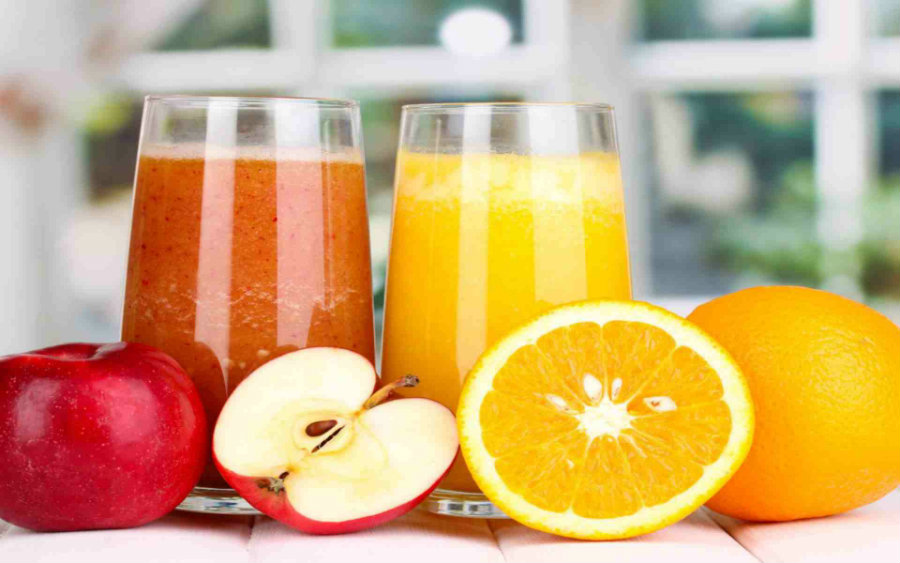The American Academy of Pediatrics (AAP) issued new recommendations about fruit juice consumption for infants and teens.
While fruit juice is often regarded as a healthy source of vitamins, the truth is that it is far less nutritious than eating the fruit itself, as the juice tends to have added sugar.

Babies younger than six months should be nurtured with breastmilk or baby formula, according to the study.
“High sugar content in juice contributes to increased calorie consumption and the risk of dental caries. In addition, the lack of protein and fiber in juice can predispose to inappropriate weight gain,” reads the new guidelines.
Whole fruit is always healthier than fruit juice
The AAP notes that fruit juice is different from fruit “drinks” and “beverages,” because juice should be 100 percent fruit juice while the other two often contain added sugar, flavors, and other nutrients.
Juice is mainly composed of water and different types of sugar, which constitutes between 11 and 16 percent of the liquid’s carbohydrates. On the other hand, breast milk and baby formula have a carbohydrate concentration of 7 percent, meaning that it is much more healthy for a baby than any other liquid when it comes to nutritive content.
Also, toddlers can suffer from diarrhea when drinking too much juice, especially if the child is less than four years old. It usually occurs when the carbohydrates in juice are not absorbed correctly; this is often seen after drinking apple, pear, or prune juice. On the other hand, drinking these types of juice helps kids suffering from constipation.

The trick appears to be focusing on fruit itself rather than its juice. Fruits and vegetables provide plenty of vitamins and minerals, reducing the risk of suffering from cardiovascular diseases, cancer, and obesity.
The AAP states that children between one and four years of age should consume approximately 1000 calories per day, including at least a cup of fruit within their meals. Those between 10 and 18 years of age should consume about 2000 calories per day and about 2 cups of fruit.
A similar measure in juice would be half of the fruit servings, although this is not recommended because the juice lacks all of the fiber contained in fruit pulp. Furthermore, fruit juice is consumed way more quickly than whole fruit.
Mothers with children younger than six months of age should give them prepared infant formula. Additionally, the AAP recommends that fruit juice should not be introduced to the diet of the child before solid fruits. They assure that documented cases of malnutrition and short stature in children have been found to be caused by an excessive consumption of juice.
Because parents do not always acknowledge the sugar in juice, teeth caries is another result of excessive juice consumption. In this case, the exposure occurs depending on how the juice is taken. Allowing kids to have juice boxes, cups, and bottles at their disposal expose them to a higher amount of sugar.
The AAP notes that the main problem with juice is that it tastes too good, while it is perceived as nutritious when it actually isn’t. They compare juice to soda, as both can contribute to a caloric imbalance, resulting in child obesity.
Source: American Academy of Pediatrics
